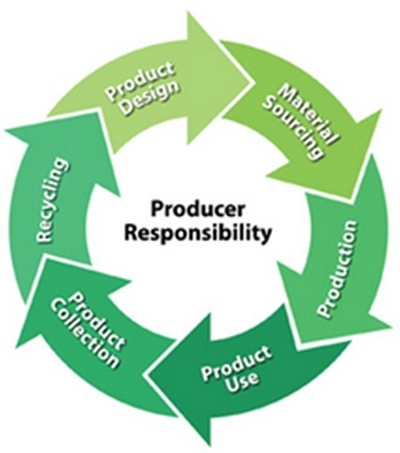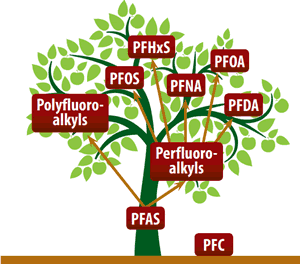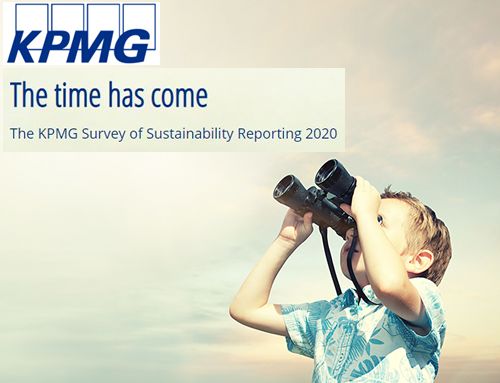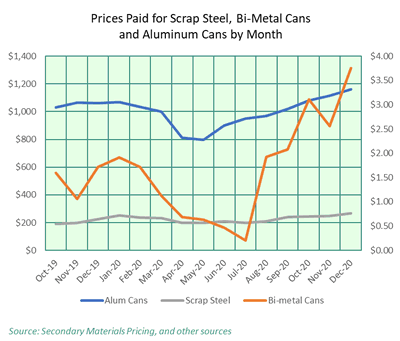Weekly News Bulletin: Dec. 7-13, 2020
Extended Producer Responsibility back on the Radar

Recent developments evidence momentum is building for consumer product companies to bear some of the recycling burden. The idea of extended producer responsibility (EPR) has been around a while but has traditionally been resisted by manufacturers. That position is softening. The Flexible Packaging Association said Dec. 7 it has reached an agreement with a product stewardship organization on legislative principles for extended producer responsibility, including for funding mechanisms for collection of materials.
On the other side of the equation, Federal and state lawmakers are proposing bills to push companies to pick up the tab. Such rules could help pay for curbside collection and sorting infrastructure and encourage companies to design packaging that is easier to recycle. Charging companies "puts the financial burden of plastic pollution back on the manufacturers who generate it and profit from it," said Sen. Tom Udall (D-NM), who this year introduced a bill that would make companies pay to collect and process packaging waste...Read More »
EPA Issues Interim Strategy for PFAS in Wastewater Permits

The U.S. Environmental Protection Agency (EPA) issued an Interim strategy for Per-and Polyfluoroalkyl Substances (PFAS) in Federally Issued National Pollutant Discharge Elimination System (NPDES) permits, signaling that the agency will begin regulating PFAS in Clean Water Act permits in 2021. The interim guidance represents EPA's first effort to regulate PFAS in wastewater and stormwater discharges. PFAS are a family of man-made chemicals that are persistent in the environment and can accumulate in the body where evidence suggests that prolonged exposure may compromise the immune system, disrupt thyroid function, or even cause cancer, among other problems...Read More »
Most Companies Now Report on Sustainability

Most companies, some 80 percent globally, now report on their steps towards sustainability, according to a recent survey by industry consultant KPMG. That's up from just 18 percent in the early 2000s. "Sustainability reporting is now so nearly universally adopted that the small minority of companies not yet reporting will find themselves seriously out of step with global norms," says Adrian King, a KPMG partner. He points out that companies today are motivated by new laws and regulations, an increasing understanding of the financial risks posed by climate change, and their recognition that environmental, social and governance (ESG) issues can affect corporate value. 65 percent of large companies seek to reduce their carbon footprint, up 15 percent over the last three years...Read More »
Demand for Scrap Metals is Raising Prices Again, At Last

A recent uptick in prices for scrap metals along with a booming market for virgin metals signals a growing market. Prices for copper have risen to their highest level in almost eight years. Iron ore, the main ingredient of steel, is one of the best-performing assets in 2020. Other raw materials, such as aluminum and zinc, have added roughly 15% since the end of September and 40% or more since mid-May.
Demand for scrap metals should be helped by an increased focus on sustainability as more companies seek to tout their use of recycled material in their products and structures. Secondary aluminum production has a carbon footprint five to 25 times lower than primary metal production...Read More »
Sign up to receive our free Weekly News Bulletin